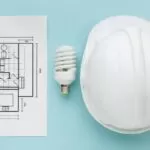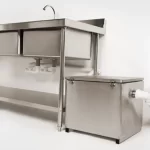The Lone Star State is no stranger to the soaring heights of high-rise buildings that grace its skyline. As a business owner in Texas, your building’s infrastructure requires careful consideration, particularly when it comes to the HVAC (Heating, Ventilation, and Air Conditioning) systems. The rooftop of a high-rise presents a unique set of challenges and opportunities. In this article, we’ll delve into the top 10 design tips for optimizing High-Rise Rooftop HVAC Systems in Texas, ensuring that your building not only meets comfort standards but also operates efficiently in the diverse Texan climate.
Table of Contents
Assessing Climate and Environmental Factors
Before embarking on any HVAC system design, it is crucial to conduct a thorough assessment of the climate and environmental factors specific to your location in Texas. Considering the state’s diverse climate, ranging from the arid conditions of West Texas to the humid coastal areas, this assessment forms the foundation of a well-tailored HVAC design. Understanding the temperature variations, wind patterns, and humidity levels will enable you to select HVAC components that can perform optimally under Texas’s unique weather conditions.
Load Calculation for Energy Efficiency
Efficient energy consumption is a paramount concern for any business owner, especially in a state where temperatures can fluctuate dramatically. Conducting a precise load calculation is the key to designing an HVAC system that meets the building’s demands while minimizing energy wastage. This involves evaluating factors such as insulation, occupancy, and equipment heat gain, ensuring that the HVAC system is neither underpowered nor oversized, striking a balance that enhances energy efficiency.
Embracing Smart Technology
In the era of technological advancements, integrating smart HVAC systems can significantly enhance operational efficiency. Smart thermostats, sensors, and automation technologies enable real-time monitoring and control, adapting to the building’s dynamic needs. This not only ensures optimal comfort for occupants but also contributes to substantial energy savings over time, aligning with Texas’s growing emphasis on sustainable business practices.
Proper Ventilation for Indoor Air Quality
Texas’s urban landscapes often face challenges related to air pollution and dust. Implementing a robust ventilation system is essential for maintaining indoor air quality in high-rise buildings. Proper air exchange rates and the strategic placement of ventilation units can help mitigate pollutants, allergens, and stale air. Prioritizing indoor air quality contributes not only to the health and well-being of occupants but also aligns with the state’s commitment to environmental stewardship.
Regular Maintenance and Inspection
Preventive maintenance is the cornerstone of ensuring the longevity and optimal performance of your HVAC system. Regular inspections, cleaning, and prompt repairs are essential to prevent potential breakdowns and minimize downtime. Texas’s varied climate conditions, including occasional storms and extreme temperatures, make it imperative to stay proactive in preserving the functionality of rooftop HVAC units.

Optimal System Zoning
High-rise buildings often house diverse functions, from offices to recreational spaces. Implementing a zoning strategy in your HVAC system allows you to tailor the temperature and ventilation settings for different zones within the building. This not only enhances occupant comfort but also contributes to energy savings by directing conditioned air precisely where it is needed, avoiding unnecessary cooling or heating of unoccupied spaces.
Energy-Efficient Roof Design
The design of the building’s roof plays a pivotal role in the overall efficiency of the rooftop HVAC system. Opting for energy-efficient roofing materials, proper insulation, and reflective surfaces can significantly impact the heat gain and loss, reducing the workload on the HVAC system. This design approach aligns with the increasing emphasis on sustainable and energy-efficient construction practices in Texas.
Noise Reduction Considerations
In the bustling urban environment of Texas, noise pollution is a constant concern. High-rise buildings, equipped with rooftop HVAC systems, need to prioritize noise reduction measures to maintain a conducive environment for occupants. Selecting low-noise HVAC equipment, incorporating sound barriers, and strategic placement of units can contribute to a quieter and more pleasant indoor experience.
Compliance with Building Codes and Regulations
Ensuring that your rooftop HVAC system complies with local building codes and regulations is not only a legal requirement but also a crucial aspect of responsible business ownership. Texas has specific codes and standards pertaining to HVAC installations, and adherence to these guidelines is essential for the safety and well-being of occupants, as well as the longevity of the system.
Conclusion
In conclusion, designing an efficient High-Rise Rooftop HVAC System in Texas requires a comprehensive approach that considers the unique climate, energy efficiency, and the well-being of occupants. By embracing smart technology, prioritizing regular maintenance, and adhering to building codes, you can create a sustainable and comfortable indoor environment for your building. Implementing these top 10 design tips will not only enhance the efficiency of your HVAC system but also contribute to the overall success and longevity of your high-rise property in the vibrant business landscape of Texas.




